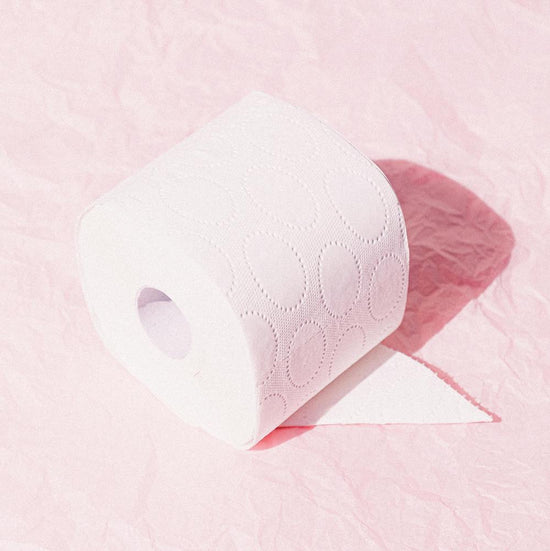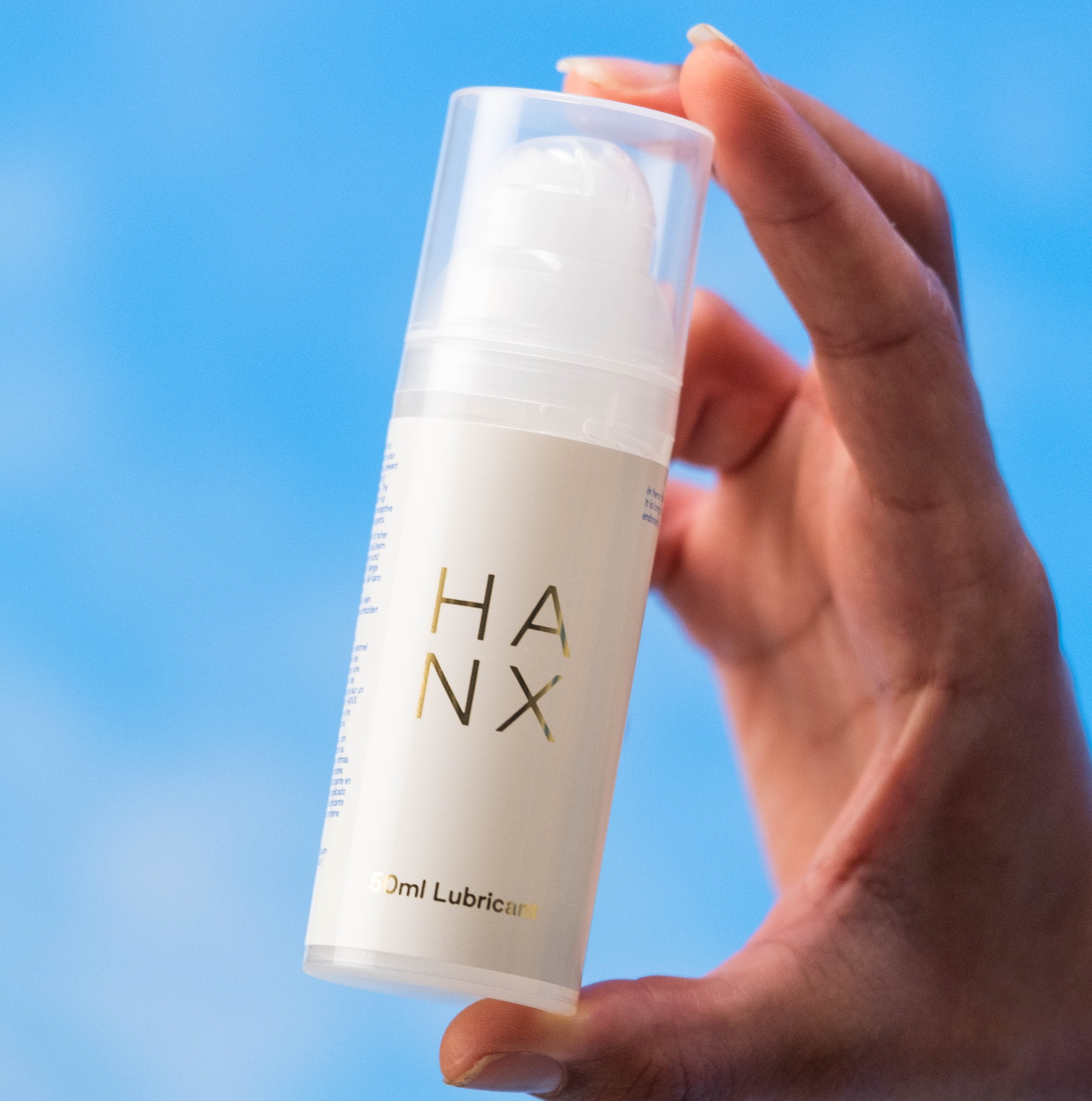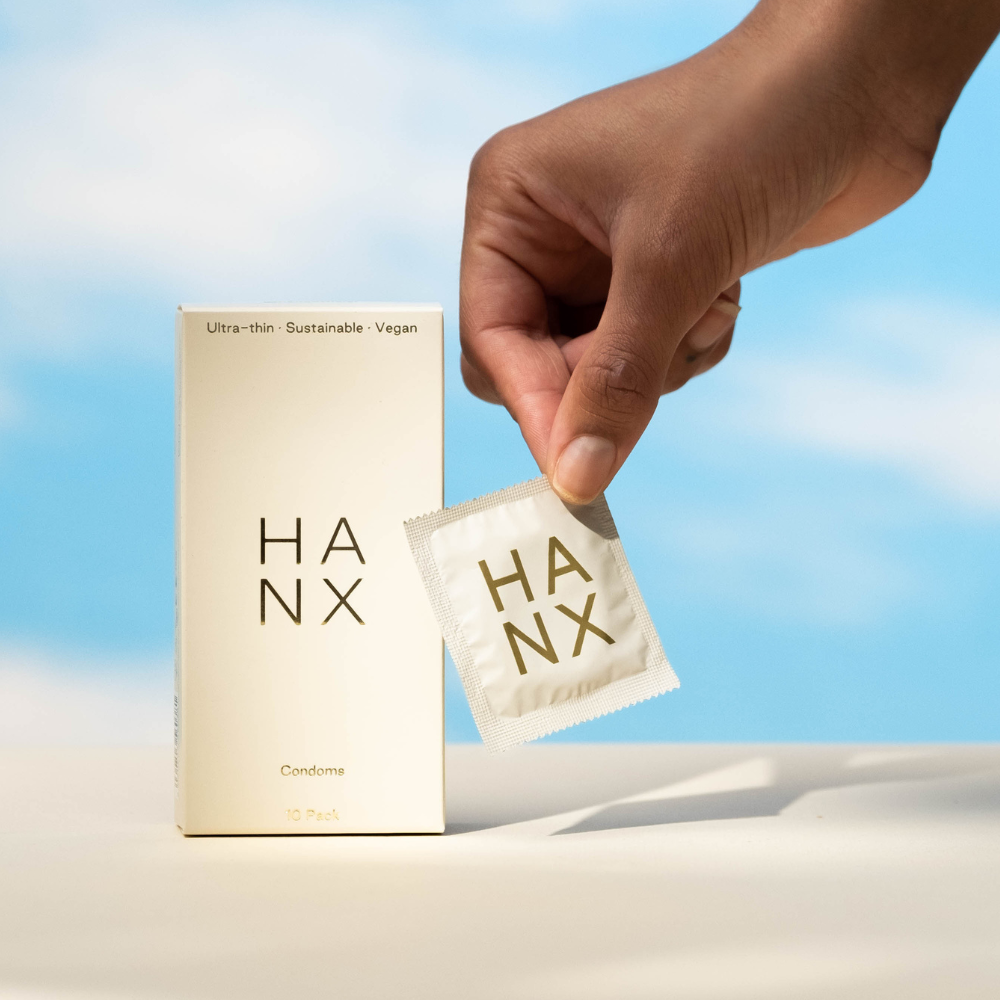Your Morning After Pill Guide: Where to Get It, When to Take it, Price and More
This is not an uncommon situation, but it often brings much anxiety. Some of this anxiety comes from uncertainty around what the morning after pill actually is, where you can get it, how much it costs, and if there are other options apart from taking a pill.
Dr Sarah Welsh, HANX Co-Founder and gynaecology expert gives us the low-down on what emergency contraception is out there, how they work, and what your options are…
What is emergency contraception?
Emergency contraception is used to prevent pregnancy after unprotected sex or if the contraception you were using failed, such as missing a pill or your condom splitting. There are two types, including the emergency contraceptive pill (commonly known as the morning after pill), and the intrauterine device (also known as the IUD or copper coil).
Emergency contraception should not be something that is used regularly but can be used as a fallback for when other methods of contraception fail. It’s also important to remember that emergency contraception does not protect you against sexually transmitted infections, so you must protect yourself with condoms and ensure you get an STI check if you have unprotected sex or your condom breaks.
The morning after pill
The morning after pill is the most common form of emergency contraception, and is widely available. It contains hormones that help prevent pregnancy if taken in a short window after having unprotected sex.
What does the morning after pill do?
- The morning after pill doesn’t prevent a pregnancy that has already implanted, but it does reduce the risk of someone becoming pregnant after having unprotected sex.
- It does this by:
- preventing or delaying ovultion.
- blocking fertilisation or keeping fertilised eggs away from implanting in the uterus.
- If you have already ovulated within your current cycle, or are currently ovulating, then the pill won’t be able to delay ovulation.
- See more on when the pill is ineffective below.
- Contrary to popular belief, the morning after pill is not an abortifacient - instead, it works to prevent conception altogether.
What are the different brands of morning after pills to choose from in the UK?
- There are several different brands of emergency pills in the UK - the ones available at HANX are ellaOne, Levonorgestrel, Ezinelle and Levonelle one step.
-
If you’re not sure which type is best for you, check out our comparison table to understand the key difference between these brands.
How much is the morning after pill and where to get it?
- You can get the morning after pill from all NHS sexual health clinics, and you can also purchase it from pharmacies.
- If you don’t want to go in-person, you can request the morning after pill from online pharmacies (such as HANX).
- The cost of the morning after pill varies based on the brand - for example, Ezinelle and Levonorgestrel cost £18, whilst ellaOne costs £34.95.
When should you take the morning after pill?
- Ideally, you should take the morning after pill as soon as possible after having unprotected sex.
- Depending on the brand, you have a certain timeframe in which the pill will still be effective. For example, for Levonelle, this is 72 hours, whereas for ellaOne it is 5 days.
- See more about different brands on our comparison table, here.
- Always check the packet that comes with your morning after pill to confirm.
How do you administer the morning after pill?
- All brands offered by HANX come in the form of a single tablet, which should be swallowed whole with water, with or without food.
-
Don’t take more than one dose unless instructed - if you are on HIV medication, you may need to take 2 doses of certain brands like Levonelle.
How effective is the morning after pill?
- As the name suggests, the sooner you take the morning after pill after unprotected sex, the more likely it is to be effective at preventing pregnancy.
- Effectiveness can also vary slightly depending on the brand. A report from 2017 suggests that after taking ellaOne, 1-2% of women get pregnant, whereas after Levonne it's approximately 0.6% to 2.6%.
- No one can know for certain exactly how effective the pill will be, as it varies depending on the person, but overall it is very effective at helping prevent pregnancy after having unprotected sex.
When could the morning after pill be ineffective?
- If you take it after ovulation: As the morning after pill works to prevent ovulation, it means that if you are already ovulating, it will be less effective. If you feel you are already ovulating, it may be worth exploring other emergency contraception, such as the IUD.
- You may know you’re ovulating through physical signs, such as clear vaginal discharge and tender breasts, but it’s very difficult to know exactly.
- If you are overweight or have a high BMI: There is some limited data that you may have seen about the morning after pill being less effective if you are overweight or have a high BMI. This data isn’t conclusive or definitive, so it’s highly recommended you still take the morning after pill or the IUD. Depending on your weight, some doctors may recommend you take two doses, but only do this if specifically advised.
- If you get sick shortly after: If you vomit within two hours after taking the tablet, you should take another, as it may not have been fully absorbed. If you’re seeing a medical professional, it is worth asking for an anti-sickness medication to take with the second tablet to ensure it stays down!
- If you take it before having unprotected sex: Once you have taken the morning after pill, it only acts to prevent pregnancy for that one time, and will not prevent pregnancy from any further occurrences of unprotected sex in that menstrual cycle.
- If you are on HIV medication: ellaOne may not be an option, and you may have to take two doses of Levonelle. Please speak to a medical provider to get accurate advice if you are on HIV medication.
What are the side effects of the morning after pill?
- The morning after pill is very safe to use, but like all medication, some people experience side effects. These include nausea, vomiting, dizziness, tiredness, breast tenderness, headaches and abdominal pain.
- Side effects should always be listed on the leaflet that accompanies the pill, as they may vary don the brand.
- If the side effects continue, or you feel very ill or have an allergic reaction, please seek medical advice.
Does the morning after pill make you bleed?
- Some spotting or bleeding can occur after taking the morning after pill, and can continue for a several days.
- If the bleeding it lasts longer than a week then you should seek medical advice.
Does the morning after pill affect periods?
- Often people who menstruate have their periods as usual after taking the morning after pill, but the hormone within the pill can disrupt this occasionally, bringing it forward or delaying it slightly.
- Your period may also be lighter, heavier or even longer than usual as a result of taking the morning after pill.
- If your period is more than 5 days late, the morning after pill may not have worked and you should look into testing for pregnancy.
When should you avoid the morning after pill?
- If you are on certain medicines they may interact with the morning after pill. These include:
- Epilelsey medication
- HIV medication
- Tuberculosis medication
- Medicine to reduce stomach acidity, e.g. omeprazole
- St John’s Wort
- Certain antibiotics, such as rifampicin and rifabutin
- If you have severe asthma or allergies to the ingredients, this may also impact what form of emergency contraception you can be offered.
- Always be honest with the medical provider issuing the morning after pill to ensure you get the right medication and advice.
Alternative option – The copper coil
The copper coil, also known as the intrauterine device or IUD, is a small T-shaped device that is covered in copper and is inserted into the womb to act as a very effective contraceptive. It can be inserted up to 10 days after unprotected sex to act as emergency contraception too. The copper coil can remain inside the womb for up to 5 or 10 years for contraception, and removed at any time. It is inserted using a speculum to open the vagina and visualise the neck of the womb (the cervix). The device is inserted through the cervix into the womb, where it sits. The copper is released slowly into the womb, and acts to change the mucus at the cervix, which makes it difficult for sperm to survive or to reach an egg, as well as preventing a fertilised egg to implant into the womb lining.
What are the side effects of copper coil?
As the copper coil does not contain hormones, the side effects are not hormonal and it is unlikely the timing of your menstrual cycle will alter. However, some women experience bleeding between periods or spotting. Many women also experience heavier menstrual bleeding as a side effect of the copper coil. The coil can cause discomfort in some women, especially immediately after insertion. It’s also worth noting that if you’ve had pelvic infections the copper coil may not be suitable for you.
What else do I need to consider?
So you’ve taken the morning after pill, or had the copper coil inserted. Is that all? As not all emergency contraception is 100% effective, it is worth considering taking a pregnancy test if your period is late/delayed or even if it is lighter or shorter than is normal for you.
It’s worth thinking about your choice of contraception moving forwards if this is something that could happen again. There's more to consider than just preventing pregnancy when it comes to your sexual health, so don’t forget to have a sexual health check, too. This includes checking for STIs, and also considering what lead to the need for emergency contraception.
Order the morning after pill with same day dispatch and discreet shipping here.






















